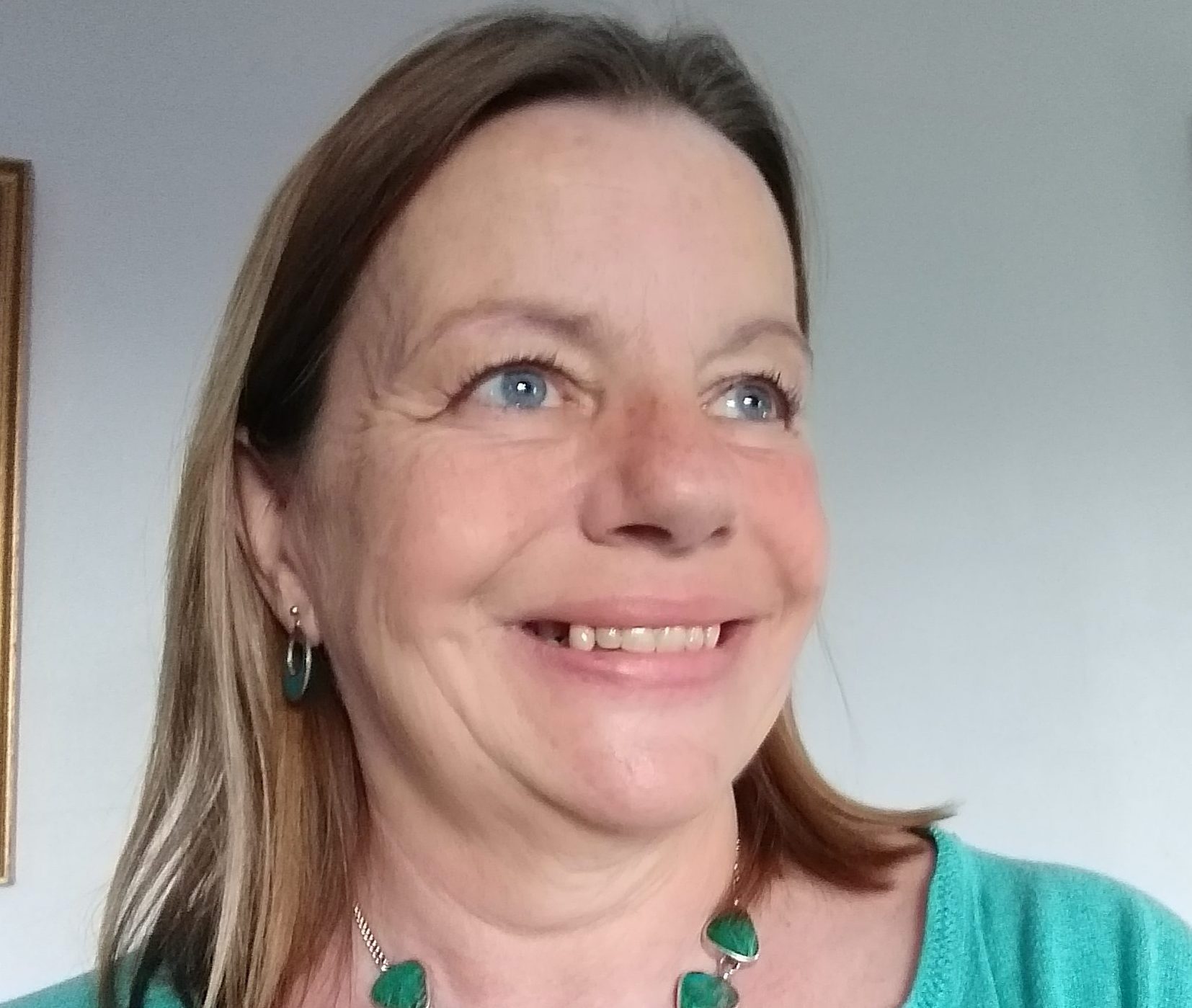The District Bulletin: the DCN’s new newsletter to help you and your team
In this newsletter:
CLLR SAM CHAPMAN-ALLEN: How the DCN is enhancing our collective strength
- MUST-READS: Our round-up of the crucial articles for district councils
- ANNE FORBES: Common sense and compassion guide our work with refugees in Ashford
- NOTICEBOARD: Essential diary dates and opportunities for you and your council
- DCN EXEC BOARD UPDATE: The issues discussed last week by our leading councillors
PLEASE SHARE THIS NEWSLETTER WIDELY ACROSS YOUR COUNCIL
How the D CN is enhancing our collective strength
CN is enhancing our collective strength
The DCN’s realignment is already bringing results
Cllr Sam Chapman-Allen, chairman, District Councils’ Network
Welcome to the District Bulletin – the new newsletter from the District Councils’ Network – giving you, as a valued member, unprecedented insight into our work.
It is part of our efforts to dramatically scale up our support to our members.
In October last year we took stock at the end of a gruelling 18 months of pandemic response and decided to realign our work. We’ve had some notable successes in recent years – fighting off planning reforms which would have been disastrous and limiting the extent of local government reorganisation, to give two examples. However, the response of DCN councils to Covid 19 took the value of our shared work to another level.
Our member councils were at the forefront of the fight against Covid, protecting the public. Through engagement of district council leaders, chief executives, cabinet members and councillors the district sector had unprecedented unity and influence. We were a key source of information to ministers and civil servants about what was happening on the ground and they worked with us to devise policies that would actually work. Policy shaping work that would have taken many months or years was accomplished in days.
As part of the DCN’s new vision we increased membership fees – and are grateful for your support for this. This has allowed us to expand our communications and lobbying work, and policy research.
We are now months on from that realignment and it has already brought success.
We’ve led an active dialogue with the Government on our hugely important role in supporting Ukrainian refugees. We were eager to make our welcome for Ukrainians as strong and as seamless as possible and to ensure that host families were not swamped by unnecessary bureaucracy or costs. We’ve made the case to ministers accordingly. We have, for instance, been successful in ensuring that single people opening up their homes to Ukrainians see their council tax discount protected and have ensured – at this time of emergency – that the houses being offered do not need to meet certain size specifications or be registered as homes of multiple occupancy.
Similarly, our ongoing engagement on planning reform has reaped dividends. The proposals outlined in the Levelling Up and Regeneration Bill appear to be a world away from what was originally proposed – and we will work with ministers to ensure they are coherent and positive.
There are challenges too. The cost-of-living crisis is hitting our residents, our staff, our partners and us as councils. Our services are cherished by the public and have huge financial benefits for the rest of the public sector. Services including parks, housing and leisure, and our pioneering work in areas including social isolation and social prescription, can take the burden off social care authorities and the NHS. We will be working to ensure the new ministerial team is fully aware of districts’ financial difficulties and the value we offer society.
We will also be working hard to show you the solutions other councils have devised to the same problems you face. Districts are a community with ingenuity and passion. Together we are stronger. This newsletter is one small way in which the District Councils’ Network will enhance our collective strength.
MUST-READS: Our round-up of the crucial articles for district councils
- Tracy Bingham, Chief Finance Officer and Strategic Director, Oadby & Wigston Borough Council, The MJ (£): Counting the cost of inflation
- Catherine Howe, Chief Executive, Adur and Worthing Councils, medium.com: The end of the beginning
- Matt Prosser, Chief Executive, Dorset Council, The MJ (£): Facing up to the workforce capacity challenge
- DCN reveals Yvonne Rees’s new role: DCN announces chief executive lead
- Outgoing Levelling Up Secretary interviewed, LGC (£): Gove warns against ‘false hope’ of extra funding
- District concerns aired, The Guardian: Inflation could push English councils into bankruptcy, say leaders
- Report by The Good Things Foundation about the value of promoting digital inclusion: The economic value of digital inclusion
 Common sense and compassion guide our work with refugees
Common sense and compassion guide our work with refugees
The same principles underpinning Ashford’s award-winning work with Syrian refugees are seen in the council’s work with Ukrainians
Anne Forbes BEM, Resettlement Manager, Ashford Borough Council
Supporting refugees is more straightforward than many people think. The role boils down to helping fellow human beings who are in a tremendously difficult position. It’s simply about opening your community and showing compassion, rather than becoming excessively embroiled in worries about cultural misunderstandings or political correctness.
In 2015 Ashford’s political leadership took a simple decision in response to the humanitarian crisis in Syria. We are a welcoming and caring community so offering sanctuary to people who have been through so much felt like the right thing to do. This leadership has permeated through the whole of the council and the borough more broadly. It is still the guiding force after we resettled 145 individuals – 35 households – displaced by the war in Syria and are now seeking to show the same compassion to those arriving from Ukraine.
Our role entails helping the people who are arriving by removing the barriers that they face in living a successful life. You appreciate what a tremendously complicated place the UK is in which to live. People are for instance typically bewildered by our health system, especially primary care and then navigating the rest of the NHS system.
Ideally you do an awful lot of groundwork before someone arrives here, setting up appointments with the various people and agencies who can help them. You very quickly move on from in effect doing everything for them to them doing things by themselves but getting support when they run into problems. Eventually, they spread their wings. Over the course of the process you need imagination and resourcefulness to help them – everyone is an individual with different needs and you sometimes have to think out of the box to meet them.
One mistake people sometimes make is assuming that everyone is in urgent need of mental health support for the trauma they have been through. Our experience suggests that most of our arrivals are brave, resilient, resourceful adults. They and their families want to create a new life and want to become self-sufficient. Our job is to remove their barriers preventing that from happening.
District councils are supremely well placed to support people. We’re very local and have buy-in from across the local community. We know our local population best. Our long-established local connections are extraordinarily important to pull the levers and remove those barriers. If it was done at a Kent level I can’t imagine how someone in, say, Dartford would have the knowledge of local networks to organise the support for someone here. It simply wouldn’t work.
We also are at a scale that means we can work with our local community to support new arrivals. Right from the start the overwhelming attitude of the Ashford community has been welcoming. On top of those who have come from Syria, we’ve currently got 172 arrivals from Afghanistan and 131 from Ukraine. The face of the borough has changed – but we’ve taken our local population with us.
The same principles that guided our work with Syrians guide our support for other groups. It’s about making people feel welcome and supported, not frustrated. And it’s about open-mindedness. It’s not so much about different populations from different places having different needs, it’s every single individual who can throw up unique challenges. Of course, they all seek and offer unique opportunities too.
Some of the men arriving from Syria felt emasculated – they were used to working hard and putting food on the table but couldn’t do so when they arrived. They were desperate for work. When they arrived it was very hard to get a job without English so we accelerated their learning of English and sought new ways to help them. At one point we had a workshop where every tool was labelled in English and Arabic so they picked up the English words. This immersed them into the English workplace.
We’ve seen tremendous success stories – people opening businesses, people who arrived speaking no English going to university and one getting a place at medical school. Another has opened up his own butcher’s and grocery. The enthusiasm of people to build their lives here has been a joy to watch.
Ashford, like other councils, is still trying to fathom out the Ukraine situation. But if other councils asked for my advice I’d say simply, don’t be afraid – it’s not that complicated. You can get a lot of support from other bodies – the South East Strategic Partnership for Migration is invaluable for us. But so much depends on your common sense and resourcefulness. You’ll have to make up quite a lot of your response up on the hoof and be adaptable.
However, our arrivals have been a huge addition to our community offering joy and hope. Our community is enriched by their presence.
NOTICEBOARD: Events and opportunities to help you
Help us reach more people on your council
The DCN is keen to reach out directly to more people on our member councils. We seek to build networks of s151 officers, communications lead officers and senior management team members leading on place or levelling up issues. This will help us share issues of potential concern or opportunity direct to these groups of staff. If the relevant officers on your council would like to hear from us, please give us their name, job title and email address and send it in an email with subject line ‘DCN new contacts’ to DCN@local.gov.uk and we’ll add them to our mailing list.
Help us make a case for districts
We want to make an even more powerful case for the value of districts through our lobbying and media work and are looking for case studies of the best of your work to help us pack a stronger punch. We’re particularly keen to get information on your work on supporting people through the cost-of-living crisis and on how you are working to level up. We’re also looking for districts with a powerful story to offer willing to host visits from journalists. Please send an email with subject line ‘DCN case studies’, stating in which area you wish to assist us, to DCN@local.gov.uk.
Homelessness consultation
Housing and finance officers are encouraged to respond to the technical consultation which will determine funding arrangements for the Homelessness Prevention Grant from 2023-24 onwards. Click here to respond, by 26 August. We’d also very much appreciate any feedback from officers on this consultation to help inform the DCN’s response. Please contact DCN@local.gov.uk by 12 August if you’d like to feed in to our national response.
Clean growth
We’re looking for examples of both best practice and barriers to facilitating green housing, energy, transport, manufacturing and land management, to add to our upcoming report with Localis on clean growth. Please contact the team at dcn@local.gov.uk for feed in, or receive further details.
New financial risk tool
The DCN has partnered with the Institute for Fiscal Studies and the Chartered Institute for Public Finance & Accountancy to build a new model to assist councils in gauging financial risk under various scenarios. The Local Government Finance Model allows councils to look at what drivers of revenues and spending – including population and demographic change, inflation and wage forecasts, and the design of the local government finance system – could mean for them. For more details click here.
DCN EXEC BOARD UPDATE What the DCN member board discussed on 13 July
There was a focus on health and wellbeing:
- The crucial role of districts in the wider determinants of health, with Kent CC Director of Public Health Dr Anjan Ghosh. We discussed the emerging new public health strategy in Kent and how all district councils in Kent will be involved in developing and delivering the strategy
- Sport England’s upcoming State of the Nation report and its implications for districts, with Sport England Director of Place, Kevin Mills. Again, this highlighted the importance of physical activity to health and wellbeing, and the pivotal role districts can play.
- DCN’s Fit for the Future report on the value of leisure and wellbeing services, with Hinckley & Bosworth BC cultural services manager Simon Jones and Cherwell DC sport and physical activity manager Tom Gubbins. In case you missed it earlier in the year, click here to read this excellent and influential report.
- The Board also discussed the implications of the impending change of Prime Minister, especially for levelling up and devolution. There is now a full set of junior ministers in the Department for Levelling Up. Ministerial portfolios have not yet been confirmed but we understand the main responsibilities will be allocated as follows. It’s worth noting that Marcus Jones MP is a former district council leader:
-
- Marcus Jones MP: housing and planning
- Lia Nici MP: levelling up and devolution
- Paul Scully MP: local government finance






